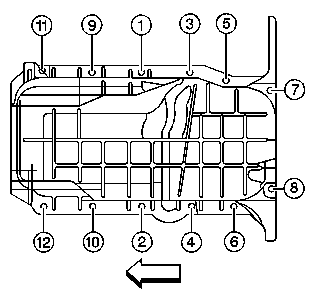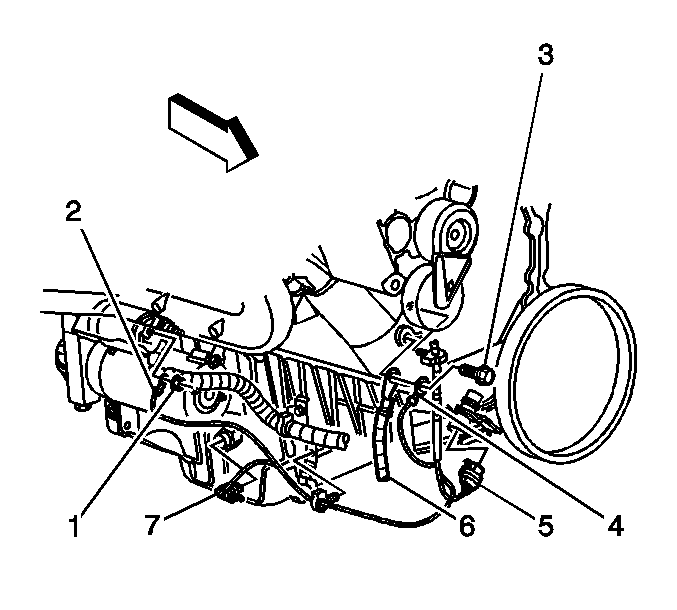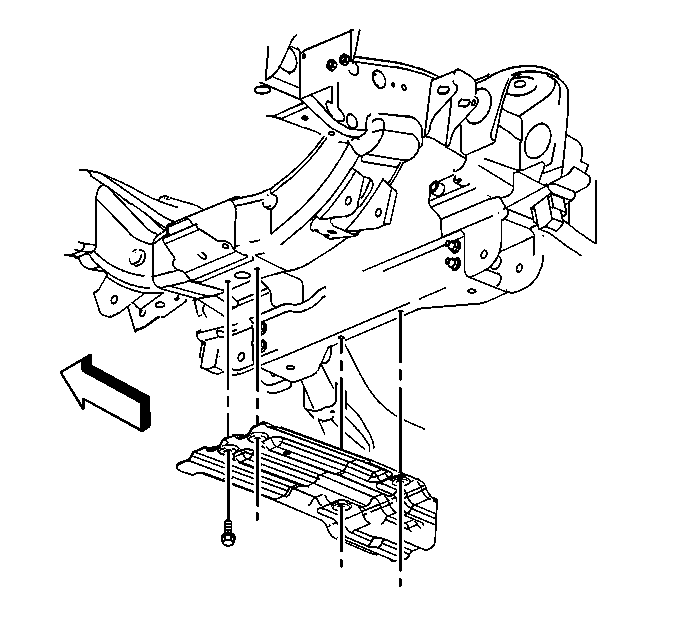Removal Procedure
- Raise and suitably support the vehicle. Refer to Lifting and Jacking the Vehicle.
- Remove the drain plug and drain the oil into a suitable container.
- Remove the oil filter.
- Remove the crossmember bolts and bar.
- Remove the engine harness bracket bolts.
- Remove the starter. Refer to Starter Motor Replacement.
- Remove the transmission cover.
- Remove the engine harness and transmission tube bracket (1).
- Remove two engine wire harness bracket bolts (1).
- Remove the manual transmission bolts, if equipped.
- Remove the automatic transmission bolts, if equipped.
- Remove the oil pan bolts and nuts.
- Remove the oil pan.
- Remove and discard the oil pan gasket.
- Clean and inspect the oil pan, if necessary. Refer to Oil Pan Cleaning and Inspection.
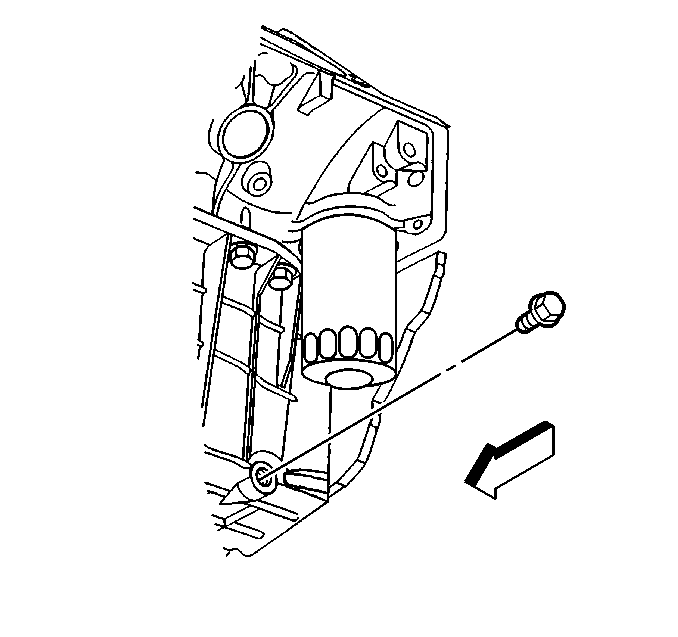
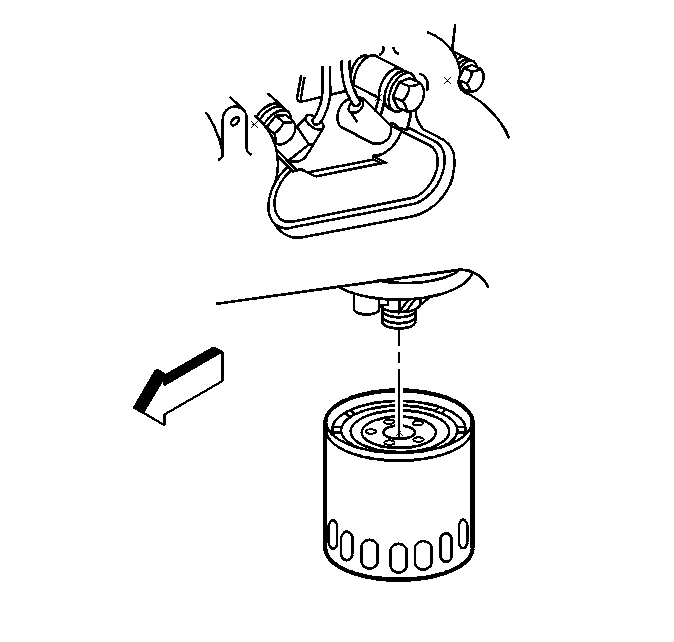
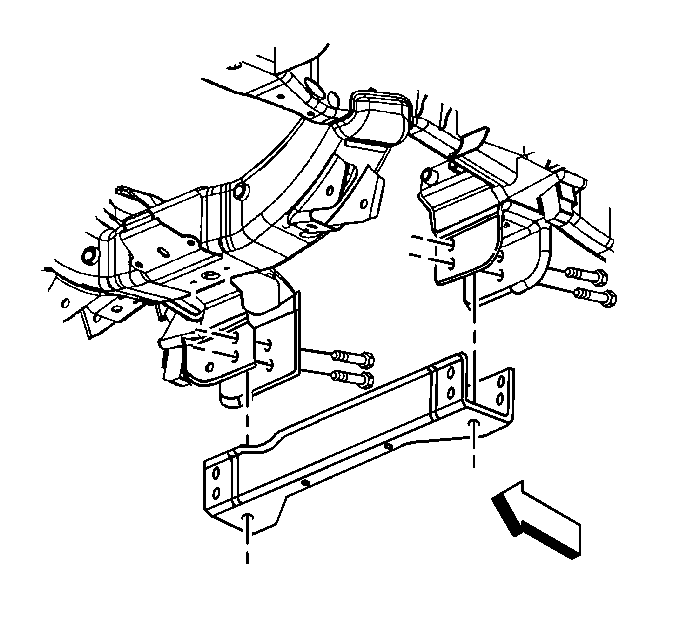
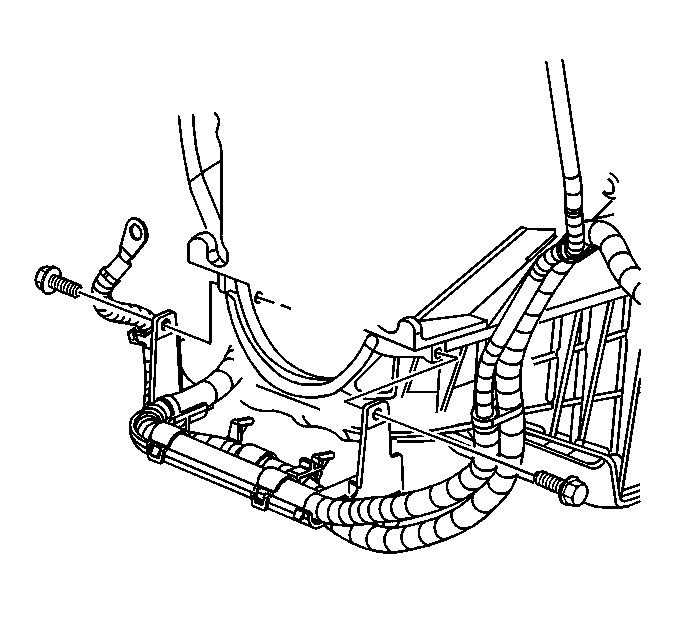
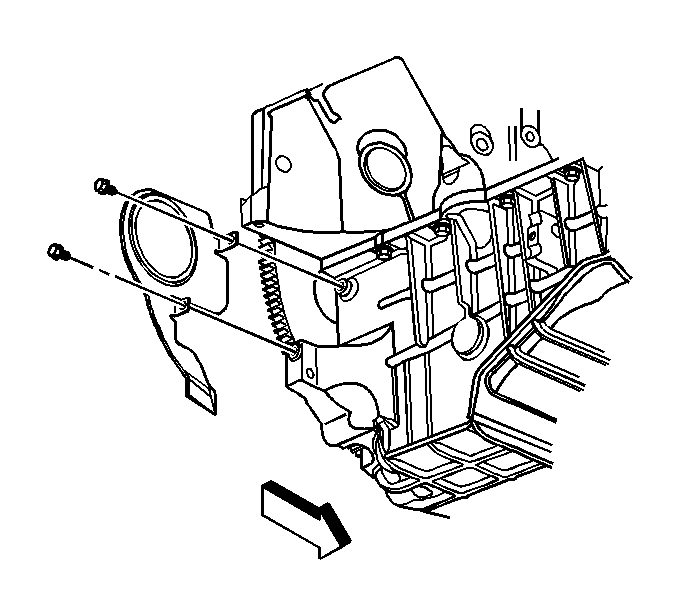
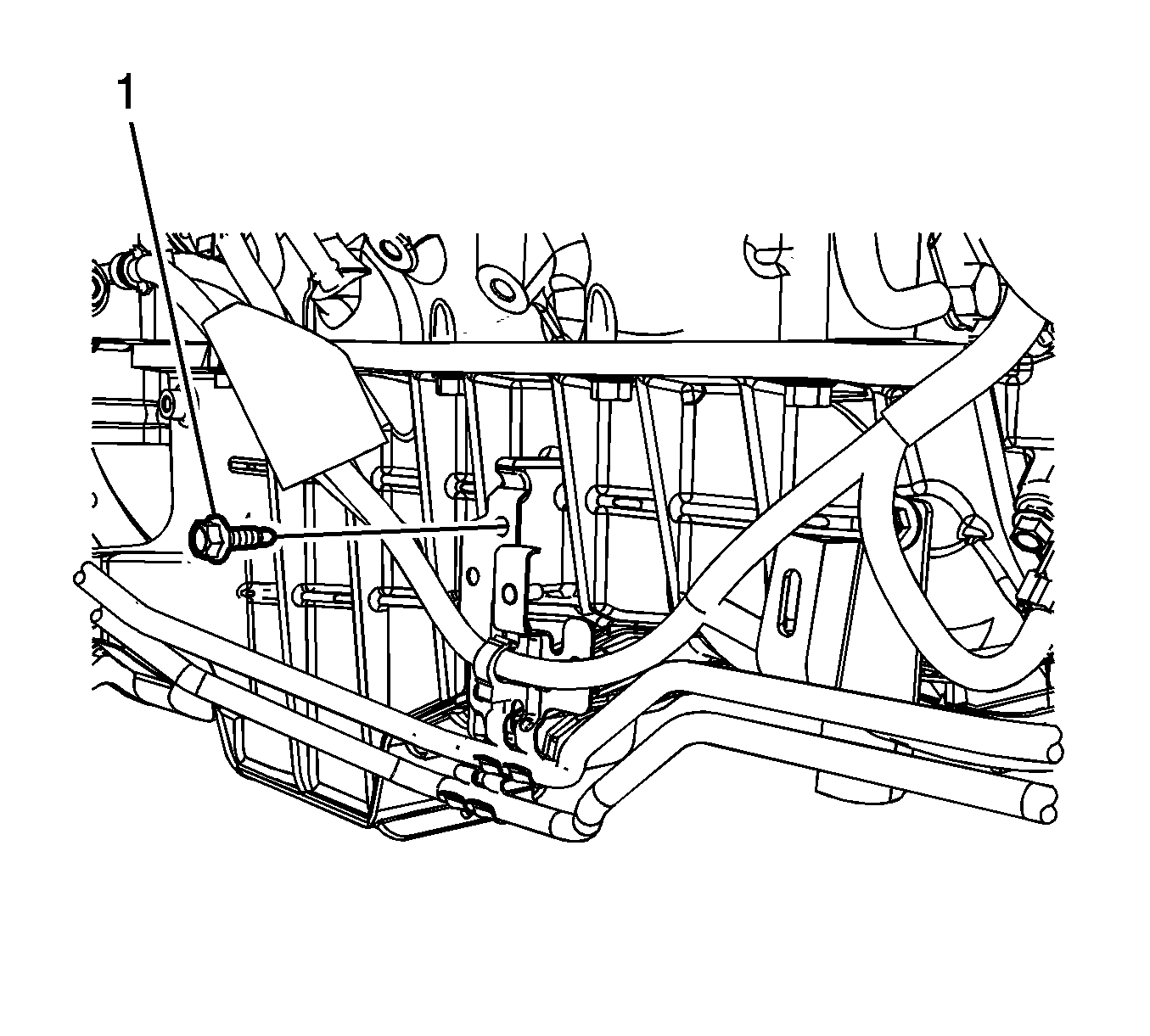
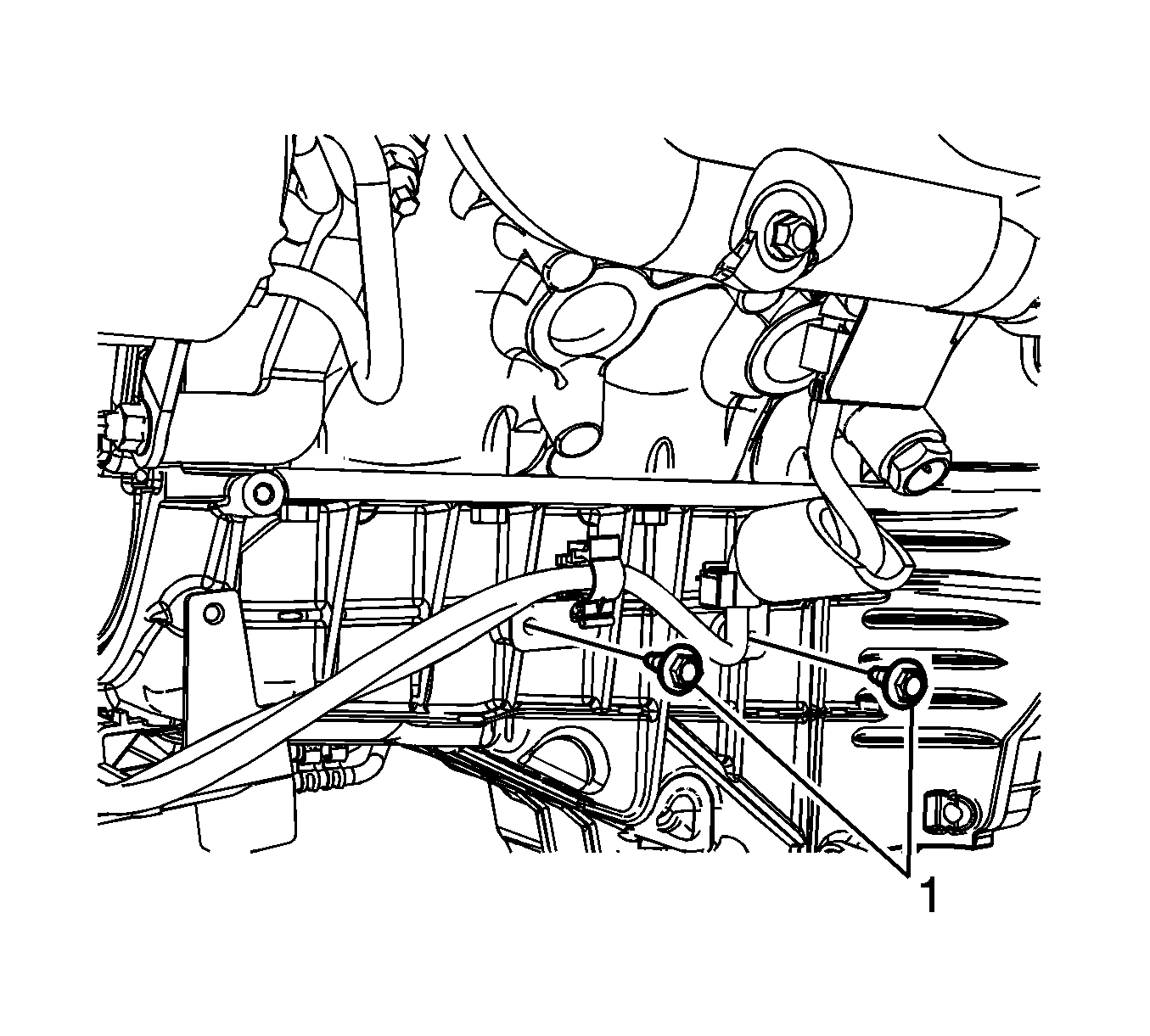
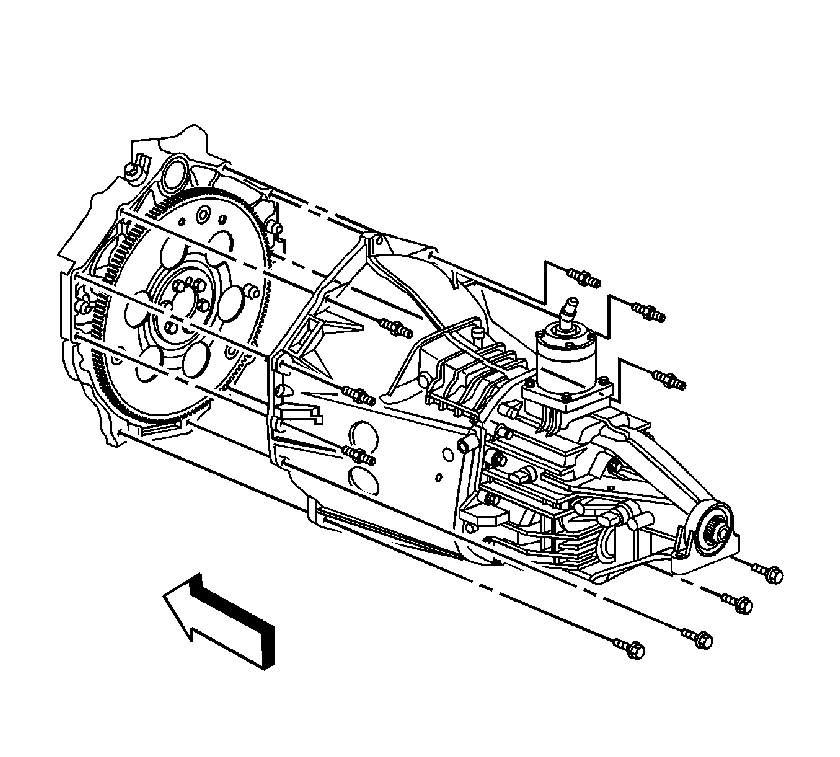
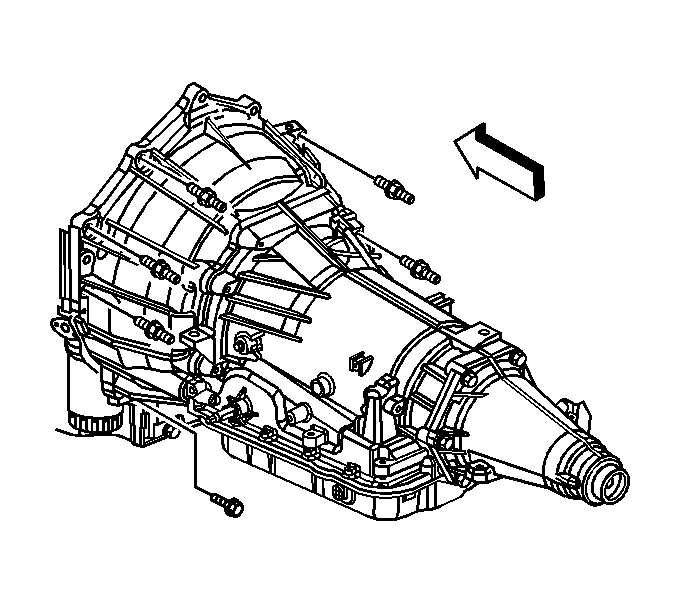
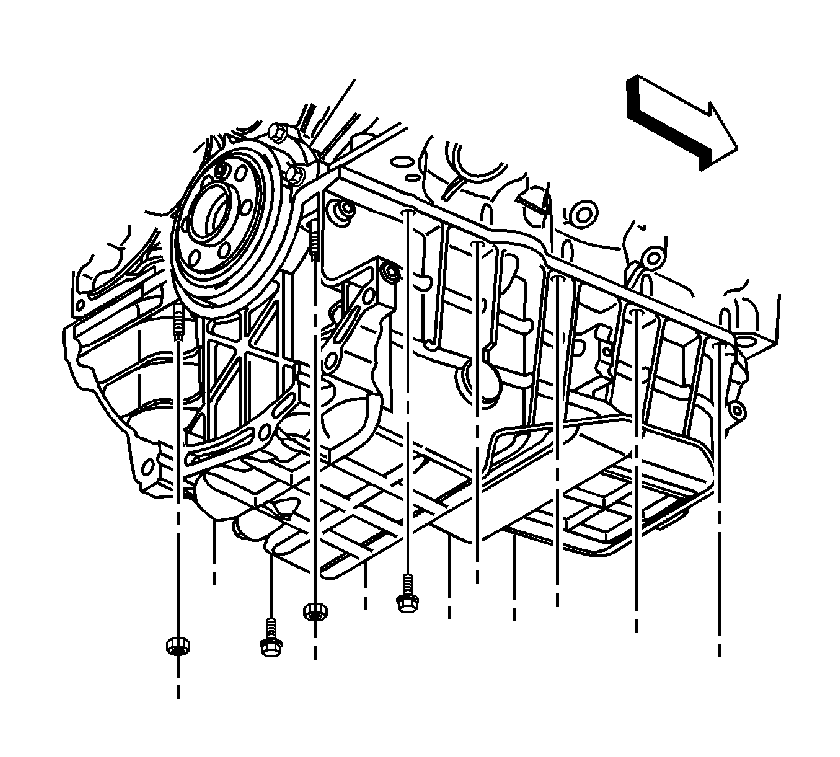
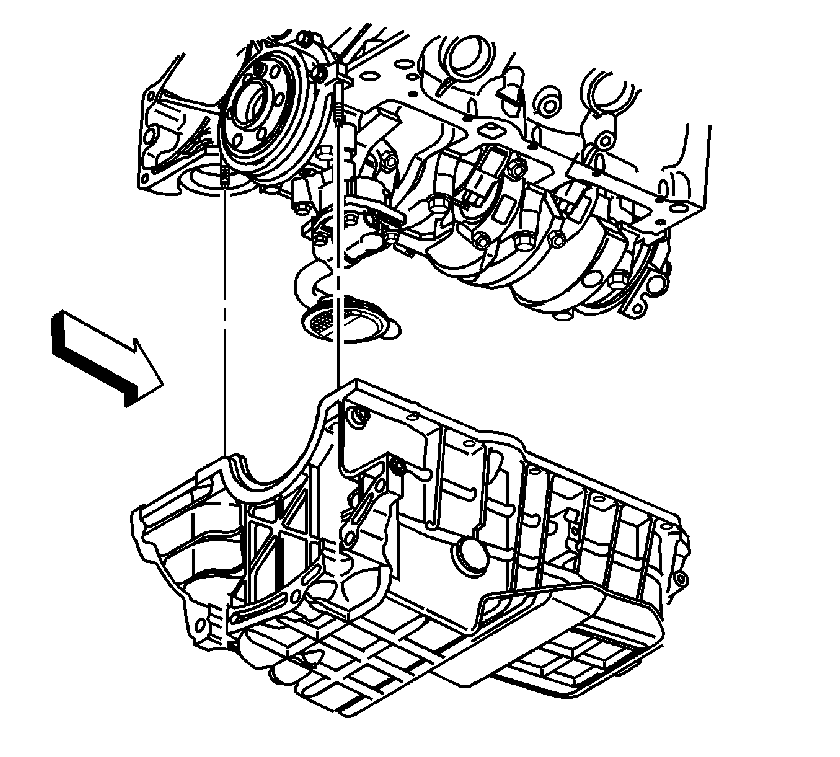
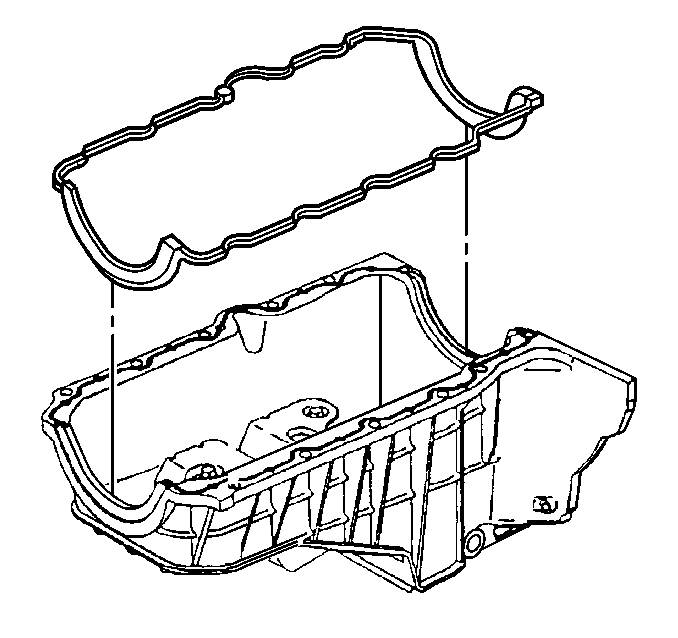
Installation Procedure
Caution: Any time the transmission and the engine oil pan are off of the engine at the same time, install the transmission before the oil pan. This is to allow for the proper oil pan alignment. Failure to achieve the correct oil pan alignment can result in transmission failure.
- Apply a 5 mm (0.197 in) wide and 25 mm (1.0 in) long bead of adhesive to both the right and left sides of the front cover to engine block junction at the oil pan sealing surfaces. Refer to Adhesives, Fluids, Lubricants, and Sealers for the correct part number.
- Apply a 5 mm (0.197 in) wide and 25 mm (1.0 in) long bead of adhesive to the entire length of rear oil seal housing to engine block junction at the oil pan sealing surfaces. Refer to Adhesives, Fluids, Lubricants, and Sealers for the correct part number.
- Install a NEW oil pan gasket into the groove in the oil pan.
- Install the oil pan.
- Slide the oil pan back against a suitable straight edge.
- Install the oil pan bolts and nuts until snug.
- Measure the oil pan-to-transmission housing clearance using a feeler gage and a straight edge.
- Tighten the oil pan bolts and nuts in the sequence shown to 25 N·m (18 lb ft).
- Measure the clearance at the oil pan-to-transmission housing measurement points in order to ensure proper alignment.
- Install a NEW drain plug O-ring seal onto the drain plug.
- Install the drain plug and tighten to 25 N·m (18 lb ft).
- Install the transmission cover and tighten the bolts to 12 N·m (106 lb in).
- Install the automatic transmission bolts, if equipped.
- Install the manual transmission bolts, if equipped and tighten to 50 N·m (37 lb ft).
- Install two engine wire harness bracket bolts (1).
- Install the engine harness and transmission tube bracket bolt (1) and tighten to 9 N·m (80 lb in).
- Install the starter. Refer to Starter Motor Replacement.
- Connect the oil level sensor electrical connector (7).
- Install the engine harness bracket bolts and tighten to 12 N·m (106 lb in).
- Install the crossmember and bolts and tighten to 100 N·m (74 lb ft).
- If equipped, install the oil pan skid plate and bolts and tighten to 20 N·m (15 lb ft).
- Lubricate the oil filter gasket with clean engine oil.
- Install the oil filter and tighten to 30 N·m (22 lb ft).
- Lower the vehicle.
- Fill the engine with the proper capacity and quality of engine oil. Refer to Approximate Fluid Capacities.
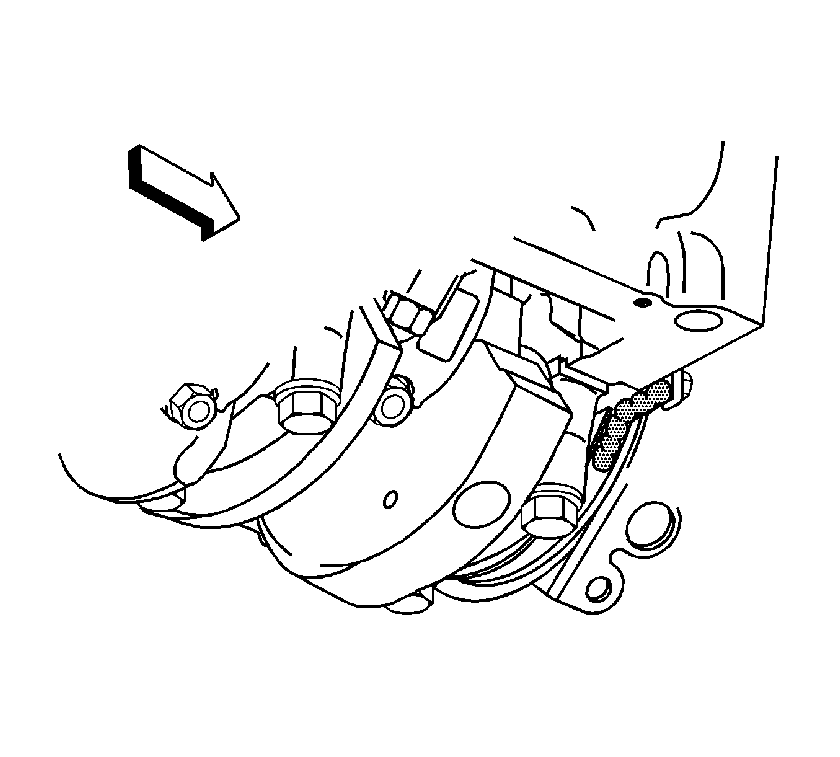
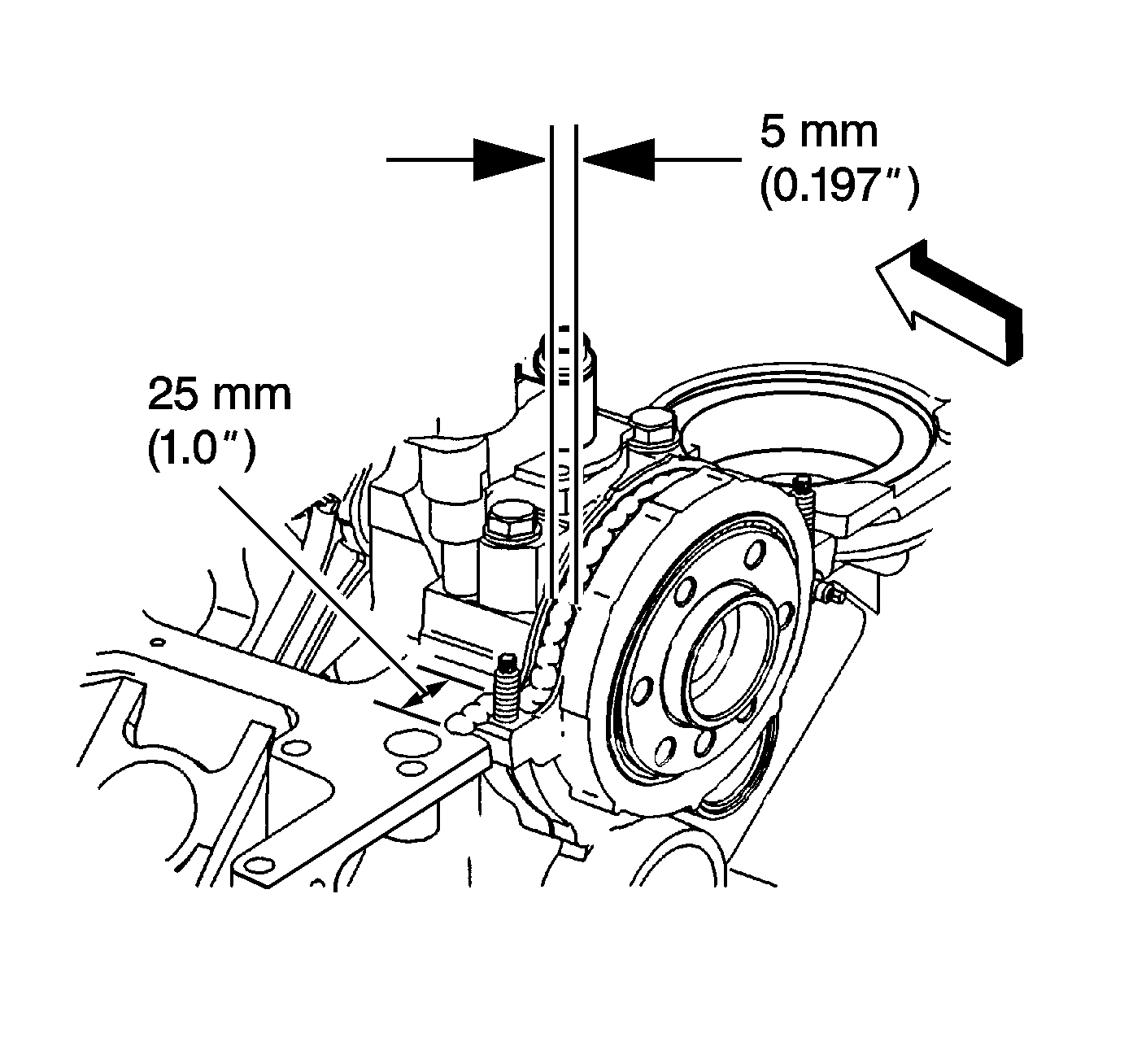

Note: Always install a NEW oil pan gasket.
The oil pan gasket and oil pan must be installed and the fasteners tightened while the adhesive is still wet to the touch.
Note: The oil pan alignment must always be flush or forward no more than 0.3 mm (0.011 in) from the rear face of the engine block.
Press the oil pan gasket into the grooves of the engine front cover and crankshaft rear oil seal housing.
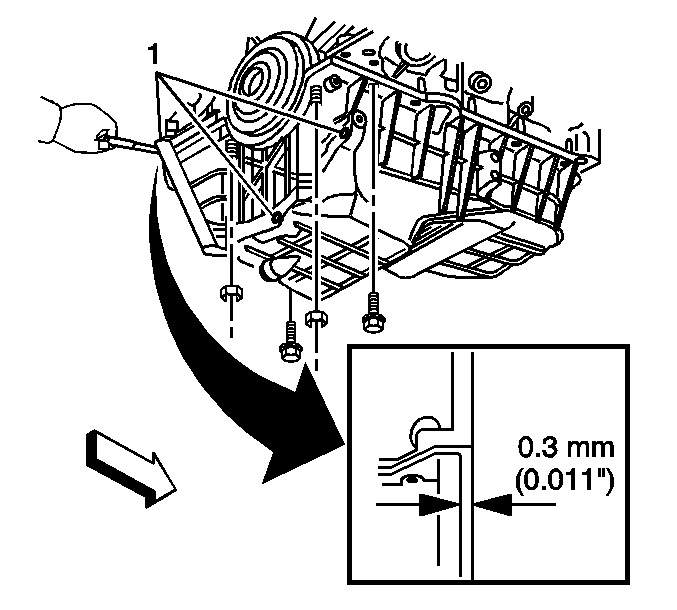
Use the feeler gage to check the clearance at the oil pan-to-transmission housing measurement points (1). If the clearance exceeds 0.3 mm (0.011 in) at any of the oil pan-to-transmission housing measurement points (1), then repeat the step until the oil pan-to-transmission housing clearance is within specifications. The oil pan must always be forward of the rear face of the engine block.
Caution: Refer to Fastener Caution in the Preface section.
